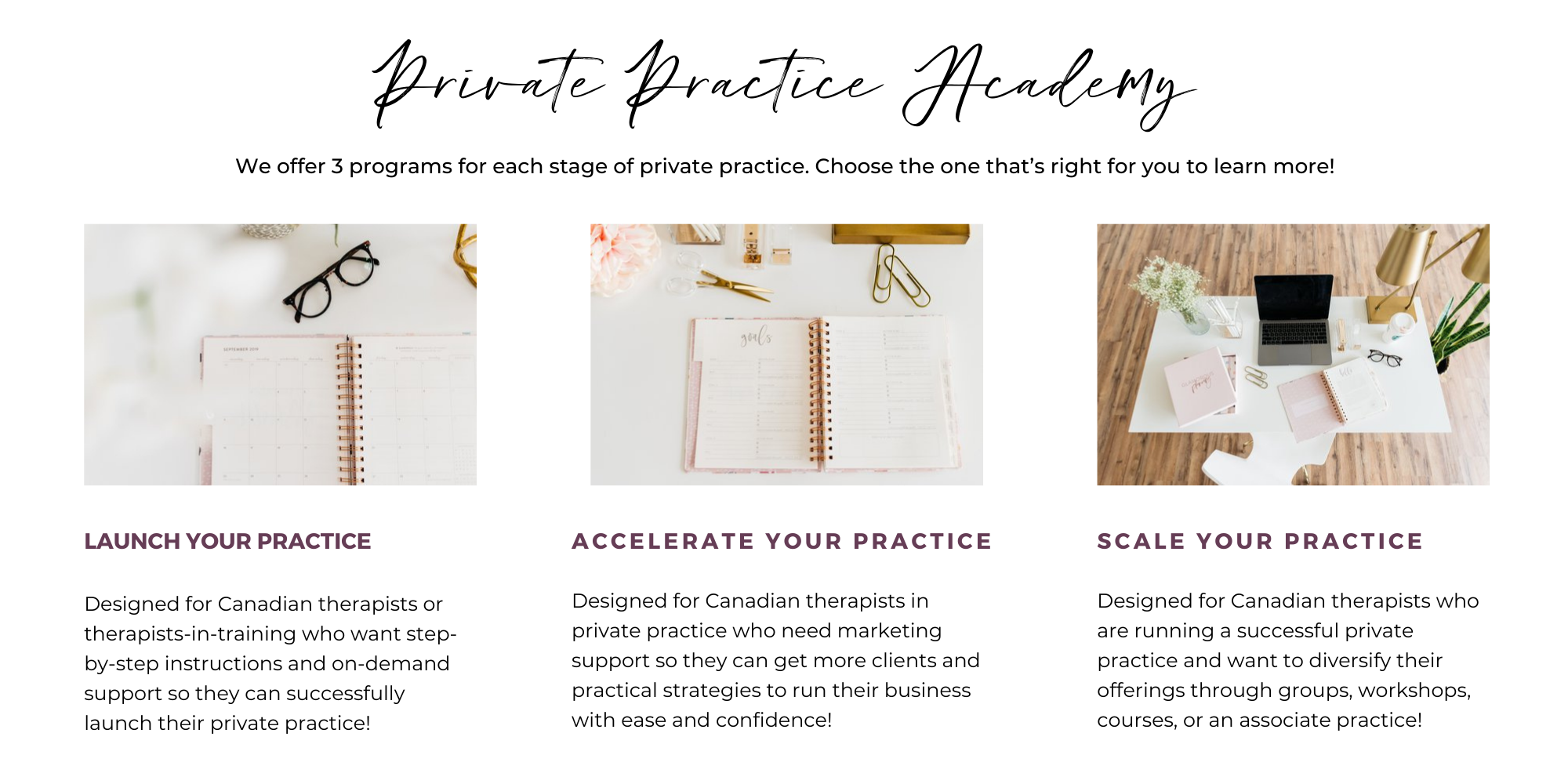Do You Need Experience To Launch Your Private Practice?
I’ve met many new therapists that have been under the impression that you are not permitted to go into private practice without years of experience under your belt. When I first learned that other people thought this, I was surprised. I had opened my doors to private practice only 3 weeks after I graduated. I was pretty much as green as you could get!
Initially, I tried to understand why people thought this. What I discovered is that twenty and thirty years ago, it was pretty much unheard of for a new therapist to go into private practice. There was a perception that going into private practice meant you had achieved a certain level of accomplishment, or a certain status in the professional world of mental health.
This false belief, however, is no longer true. In this age of the entrepreneur, and the new digital world we live in, it is more possible than ever to go into private practice as a brand new practitioner.
Seasoned therapists caution against this, yet my understanding as to their rationale, is that their caution is based on old perceptions that are not necessarily true anymore.
You will be isolated
I’ve heard this more times than I can count, as a reason that people are fearful of going into private practice. I don’t find this to be any more true than if you were to work for an organization that lacked support or collegiality.
In private practice, there is a plethora of opportunities for networking, forming peer groups, attending clinical supervision and case consultations, and you can even choose where your office is located! There is no end to the possibility of building community and collegiality when you have your own private practice.
There is no accountability
As a private practitioner, accountability is something you have to build in for yourself. You have your governing body to hold yourself accountable to, and when you’re first starting out, you will need a clinical supervisor. I recommend attending supervision and case consultation even when you are no longer required to do so.
Forming peer groups and engaging in ongoing training are also excellent ways to keep yourself accountable for maintaining best practices.
You haven’t received enough training
Regardless of where you work, there is only so much training one can acquire as a new therapist. Whether you work at an agency, in someone else’s private practice, or for yourself, there aren’t different levels of training required. You don’t need more training just to be in private practice. Your level of training should dictate the clients and types of presenting issues you take on - not necessarily where you work.
You won’t have a community of support/opportunity to network
Sure, this isn’t built-in when you start up your own private practice, but as we mentioned above, it doesn’t mean it can’t be created. Plus, there is a huge network of fellow practitioners who are also in private practice and looking to network and be part of a larger community.
If you haven’t already, hop on over to our Facebook Group and join in the conversation! You can also snag the Private Practice Readiness Workbook here.

